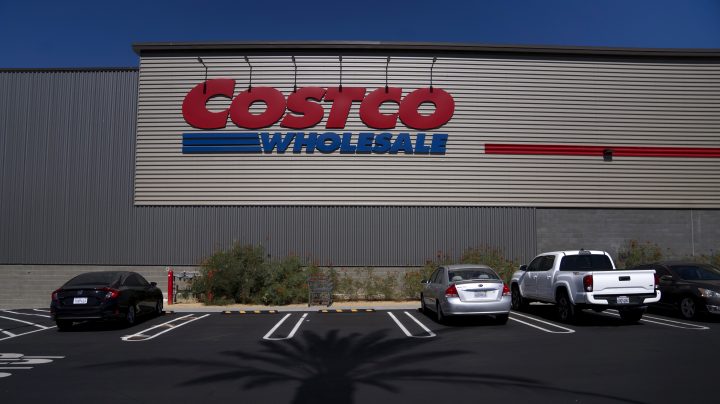
Inside the hectic post-holiday “returns season” at a Costco warehouse
Inside the hectic post-holiday “returns season” at a Costco warehouse

The Costco returns warehouse in Monroe Township, New Jersey, looks kind of like a busy ant farm. There’s constant movement as workers unload trucks, stack pallets onto fork lifts and whisk them away to different parts of the facility.
Returns from more than 60 stores, plus the region’s online orders, come here. This place is big: 860,000 square feet or the size of 15 football fields. Employees stand at rows of conveyor belts carrying a hodgepodge of items. Judy Teano inspects a plastic storage bin.
“So, unfortunately with this right here, the lid is broken, so basically it’s 50% of the product,” she said.
She scans the bin and sends it down the line where it’ll be packed up and sold to a third-party seller, a liquidator. It’s where a lot of these returns go — even things that look brand new. There’s an unused suitcase without a tag and a perfectly good football in a ripped box.
Not everything is salvageable though. Teano picks up a bath mat. “See, there’s a stain right there, a couple of stains in this one, so I might just have to donate it,” she said.
The holidays are long gone, but retailers are in the middle of their holiday hangover: returns season. Because after you — the consumer — bring an item back to the store or drop it in the mail, retailers have a lot of work to do. And it’s not as simple as just putting things back on the shelves.
Teano handles more than 1,000 items a day, so she’s become a bit of a Costco encyclopedia. At one point, a blanket without a barcode rolls down the line and she magically knows exactly where to find it in her computer.
For Costco, this kind of knowledge is priceless, because the store sells a huge variety of stuff and each item has its own returns protocol.
“It’s not one-size-fits-all for every product. Everything you touch has a different story,” said Brandie O’Hara, the company’s director of return operations. “It’s almost like a 31 flavors of returns.”
Take electronics: Most contain user data like a Spotify account or credit card number. After they’re returned, they’re either sent back to the manufacturer or sold to a liquidator that wipes sensitive information. It means any returned TV must be resold as an open box item.
Other products have no resale value at all. For instance, O’Hara said Costco donates all returned bikes because of liability problems.
“And as much as we feel like you can change a toothbrush head and you still have this really good toothbrush or, you know, other personal hygiene items, there’s just really not a market for it,” she said.
Instead, it gets recycled.
Finally, plenty of products aren’t worth the hassle of inspection. Why pay employees to unbox, plug in and test $30 coffee makers if you can quickly sell them to liquidators and recoup part of the cost? In fact, most stores send returns directly to liquidators without inspection. Only big chains like Costco are investing in their own returns technology.
“It’s the cost of doing business no matter what you do, so how can we get the most value out of that cost,” she said.
Value, because the returns side of the business is about recovering money. Americans returned more than $800 billion worth of goods in 2022, according to the National Retail Federation. That’s equal to the GDP of Switzerland.
O’Hara said reverse logistics — that’s the fancy industry term for returns — has exploded with online shopping.
“I tend to take additional liberties if I have an online return. I order two vanities and I wanna see which one I like, which one goes with my flooring,” she said.
Shoppers are up to four times more likely to return online purchases, according to the Reverse Logistics Association. It’s why many logistics experts think more retailers will start charging return shipping or restocking fees or get rid of generous return policies.
That’s not happening anytime soon at Costco, which is famous for its policy: unlimited returns despite condition or purchase date, with some exceptions. People do take advantage of it, Teano said.
“I’ve seen headphones that are like completely broken in half, they would return it. One time I had a toaster that was bought in 2001. Let it go.”
There’s a lot happening in the world. Through it all, Marketplace is here for you.
You rely on Marketplace to break down the world’s events and tell you how it affects you in a fact-based, approachable way. We rely on your financial support to keep making that possible.
Your donation today powers the independent journalism that you rely on. For just $5/month, you can help sustain Marketplace so we can keep reporting on the things that matter to you.











